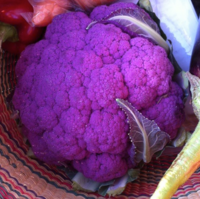
Inducing red pigment and inhibiting citrinin production by adding lanthanum(III) ion in Monascus purpureus fermentation.
Sign Up to like & getrecommendations! Published in 2021 at "Applied microbiology and biotechnology"
DOI: 10.1007/s00253-021-11162-9
Abstract: Monascus pigments (MPs) are widely used natural colorants in Asian countries. The problems of low extracellular red pigment (ERP) and high citrinin remain to be solved in Monascus pigment production. The effect of lanthanum(III) ion… read more here.
Keywords: purpureus fermentation; production; monascus; red pigment ... See more keywords

Cytotoxic Effect of Prodigiosin, Natural Red Pigment, Isolated from Serratia marcescens UFPEDA 398
Sign Up to like & getrecommendations! Published in 2020 at "Indian Journal of Microbiology"
DOI: 10.1007/s12088-020-00859-6
Abstract: Prodigiosin is a secondary metabolite, with red pigmentation, produced by Serratia marcescens. Red pigment is a natural alkaloid whose chemical structure has three pyrrole rings. Prodigiosin has been described for several biological activities, including antitumor,… read more here.
Keywords: ufpeda 398; prodigiosin; serratia marcescens; red pigment ... See more keywords

Profiling of red pigment produced by Streptomyces sp. JAR6 and its bioactivity
Sign Up to like & getrecommendations! Published in 2017 at "3 Biotech"
DOI: 10.1007/s13205-017-1044-7
Abstract: Actinomycetes strain was isolated from leaf litter soil sample and was identified as Streptomyces sp. by conventional and molecular approaches. The biologically active compound responsible for antimicrobial and anticancer activity of the strain JAR6 was… read more here.
Keywords: produced streptomyces; profiling red; pigment produced; streptomyces jar6 ... See more keywords

Effects of high-humidity hot air impingement blanching (HHAIB) pretreatment on the change of antioxidant capacity, the degradation kinetics of red pigment, ascorbic acid in dehydrated red peppers during storage.
Sign Up to like & getrecommendations! Published in 2018 at "Food chemistry"
DOI: 10.1016/j.foodchem.2018.03.123
Abstract: Effect of high-humidity hot air impingement blanching on photochemical degradation kinetics (red pigments and ascorbic acid) and antioxidant capacity changes (2,2-diphenyl-1-picrylhydracyl, DPPH and total antioxidant capacity) of red pepper during 6-month storage at ambient temperature… read more here.
Keywords: red pigment; degradation; antioxidant capacity; ascorbic acid ... See more keywords

Interaction of the red pigment-concentrating hormone of the crustacean Daphnia pulex, with its cognate receptor, Dappu-RPCHR: A nuclear magnetic resonance and modeling study.
Sign Up to like & getrecommendations! Published in 2018 at "International journal of biological macromolecules"
DOI: 10.1016/j.ijbiomac.2017.08.103
Abstract: The primary sequence of the red pigment-concentrating hormone (RPCH) receptor of the water flea, Daphnia pulex, was used in homology modeling to construct the first 3D model of a crustacean G-protein coupled receptor, Dappu-RPCHR. This… read more here.
Keywords: pigment concentrating; dappu rpchr; red pigment; dappu ... See more keywords

Monascus Red Pigment Liposomes: Microstructural Characteristics, Stability, and Anticancer Activity
Sign Up to like & getrecommendations! Published in 2023 at "Foods"
DOI: 10.3390/foods12030447
Abstract: Monascus red pigments (MRPs), which are a kind of natural colorant produced by Monascus spp., are widely used in the food and health supplements industry but are not very stable during processing and storage. Thus,… read more here.
Keywords: monascus red; red pigment; anticancer activity; pigment liposomes ... See more keywords

Natural Red Pigment Production by Monascus Purpureus in Submerged Fermentation Systems Using a Food Industry Waste: Brewer’s Spent Grain
Sign Up to like & getrecommendations! Published in 2019 at "Foods"
DOI: 10.3390/foods8050161
Abstract: This paper studies the production of natural red pigments by Monascus purpureus CMU001 in the submerged fermentation system using a brewery waste hydrolysate, brewer’s spent grain (BSG). The chemical, structural and elemental characterization of the… read more here.
Keywords: pigment production; production; monascus purpureus; fermentation ... See more keywords